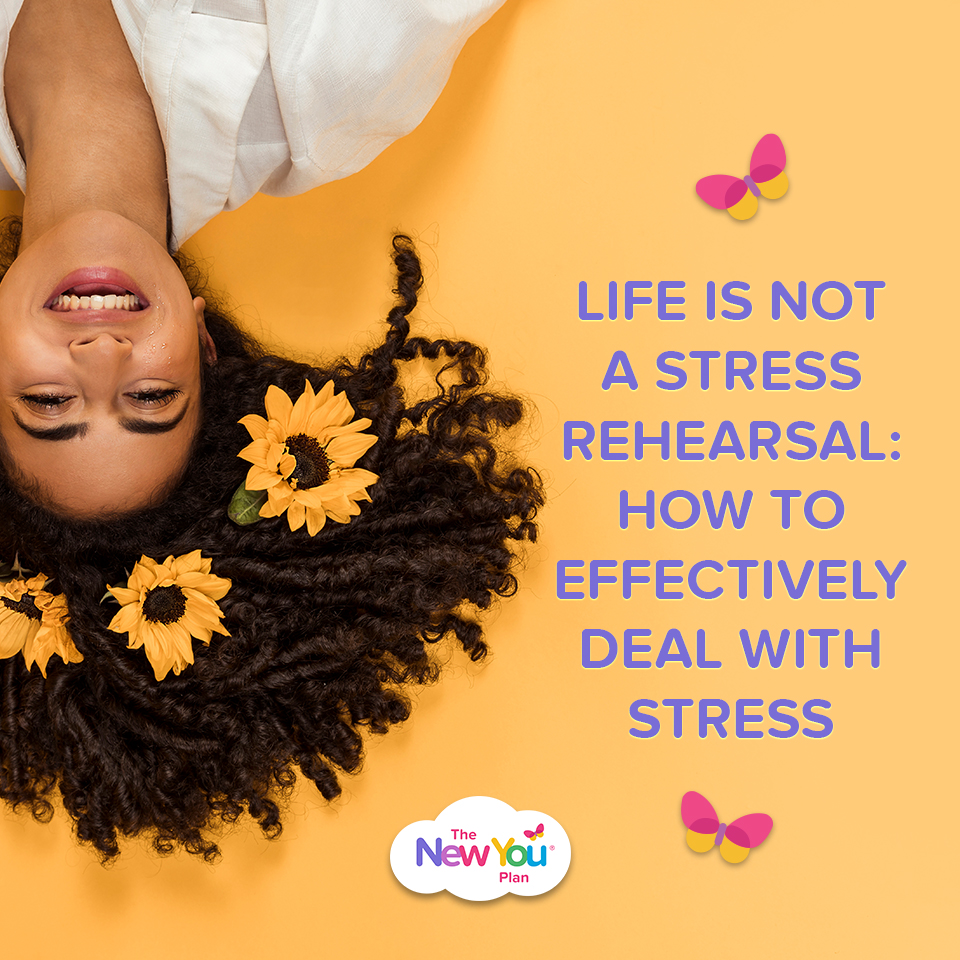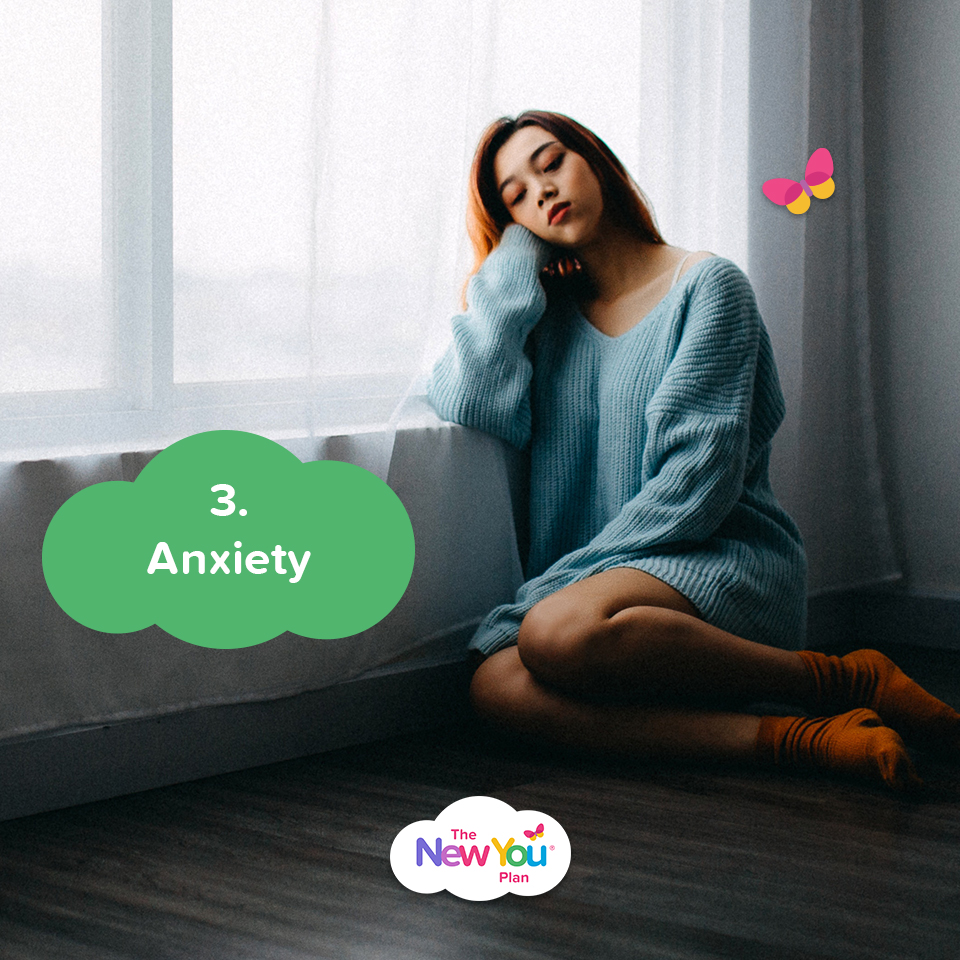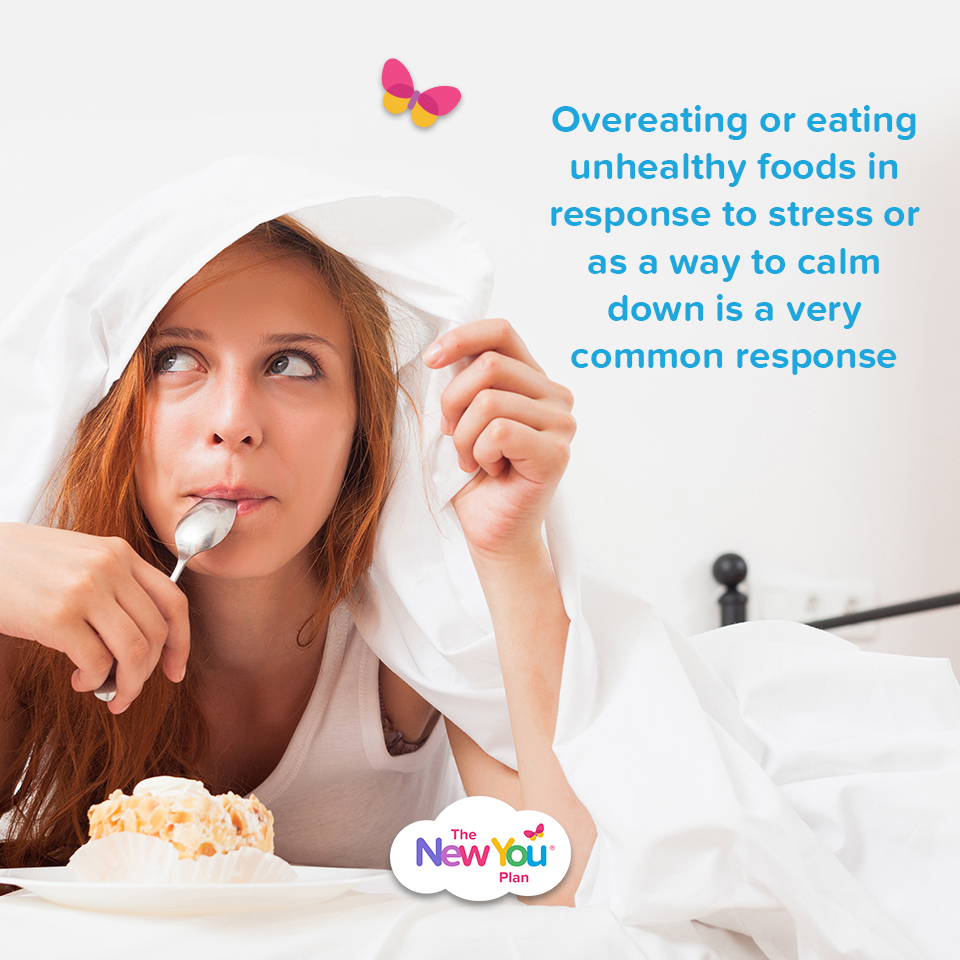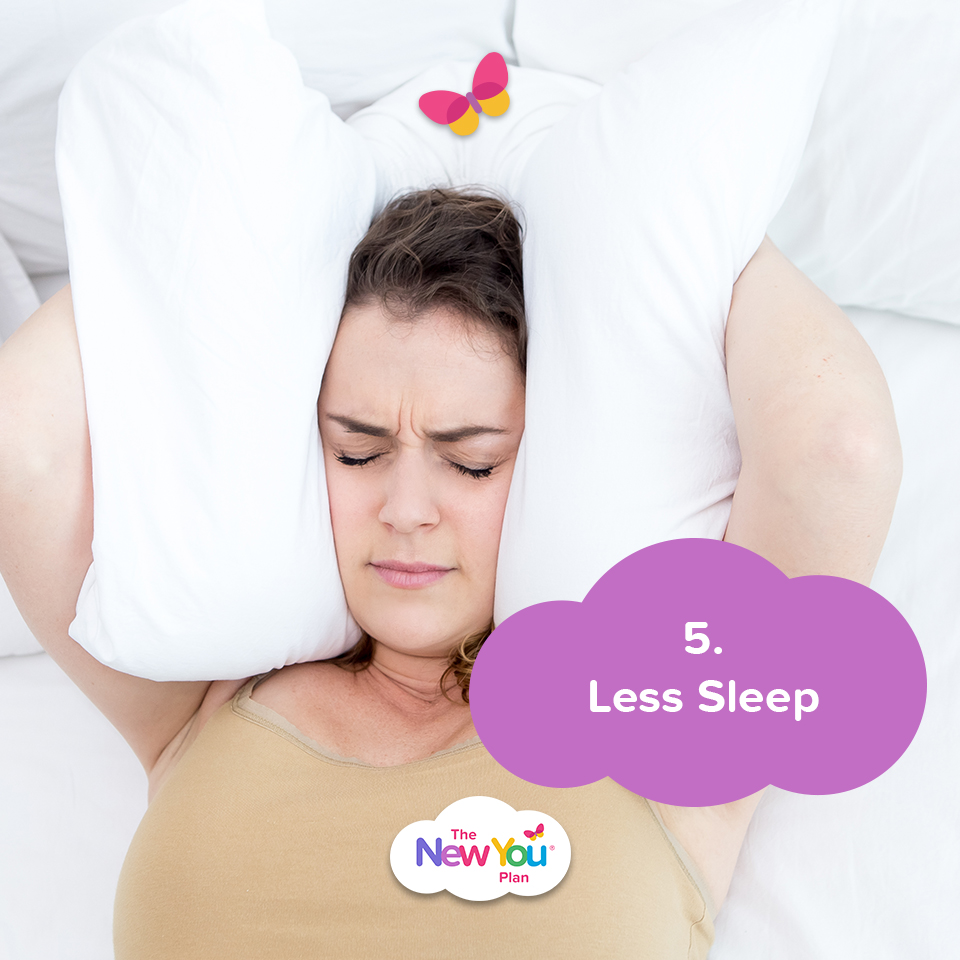
Life Is not a Stress Rehearsal: How To Effectively Deal With Stress

Is stress holding you back? Start living the life you truly want thanks to our top stress-busting tips.
A UK-wide stress survey has found that almost three quarters of adults (74%) have at some point over the past year felt so stressed they felt overwhelmed or unable to cope.
Millions of us are experiencing high levels of stress and it is damaging our health. Stress is one of the great public health challenges of our time, but it still isn’t being taken as seriously as physical health concerns.
Stress is a significant factor in mental health problems including anxiety and depression. It is also linked to physical health problems like heart disease, problems with our immune system, insomnia and it can make you gain weight. In fact, 40% of us eat when we are stressed. And stress tends to be the biggest cause of diet failure too.
Individually, we need to understand what is causing us personal stress and learn what steps we can take to reduce it for ourselves and those around us.
Stress that goes on for a long period is a triple whammy for weight – it increases our appetites, makes us hold onto the fat, and interferes with our willpower to implement a healthy lifestyle.
Below are the major reasons stress leads to weight gain and some great research-based coping strategies you can use to fight back.

1. Hormones
When your brain detects the presence of a threat, no matter if it is a huge spider in the bath, a grumpy boss, or a big credit card bill, it triggers the release of a cascade of chemicals, including adrenaline and cortisol. Your brain and body prepare to handle the threat by making you feel alert, ready for action and able to withstand an injury.
In the short-term, adrenaline helps you feel less hungry as your blood flows away from the internal organs and to your large muscles to prepare for “fight or flight.” However, once the effects of adrenaline wear off, cortisol, known as the “stress hormone,” hangs around and starts signalling the body to replenish your food supply.
Fighting off wild animals, like our ancestors did, used up a lot of energy, so their bodies needed more stores of fat and glucose. Today’s human, who sits on the sofa worrying about how to pay the bill or works long hours at the computer to make the deadline, does not work off much energy at all dealing with the stressor!
Unfortunately, we are stuck with a neuroendocrine system that didn’t get the update, so your brain is still going to tell you to reach for that packet of biscuits anyway.

2. Tummy Fat
In the days when our ancestors were fighting off tigers and famine, their bodies adapted by learning to store fat supplies for the long haul. The unfortunate result for you and me is that when we are chronically stressed by life crises and work-life demands, we are prone to getting an extra layer of “visceral fat” deep in our tummy.
Your tummy has an ample supply of blood vessels and cortisol receptors to make the whole process flow more efficiently. The downside is that excess tummy fat is unhealthy and difficult to get rid of. The fat releases chemicals triggering inflammation, which increases the likelihood that we will develop heart disease or diabetes.
Unfortunately, excess cortisol also slows down your metabolism, because your body wants to maintain an adequate supply of glucose for all that hard mental and physical work dealing with the threat.

3. Anxiety
When we have a surge of adrenaline as part of our fight/flight response, we get fidgety and activated. Adrenaline is the reason for the “wired up” feeling we get when we’re stressed.
While we may burn off some extra calories fidgeting or running around cleaning because we can’t sit still, anxiety can also trigger “emotional eating.”

Overeating or eating unhealthy foods in response to stress or as a way to calm down is a very common response. Anxiety can also make you eat more “mindlessly” as you churn around worrying thoughts in your head, not even focusing on the taste of the food, how much you’ve eaten, or when you are feeling full.
When you eat mindlessly, you will likely eat more, yet feel less satisfied.

Cravings and Fast Food
When we are chronically stressed, we crave “comfort foods,” such as crisps or chocolate. These foods tend to be easy to eat, highly processed, and high in fat, sugar, or salt.
We crave these foods for both biological and psychological reasons. Stress may mess up our brain’s reward system or cortisol may cause us to crave more fat and sugar. We also may have memories from childhood, such as the smell of freshly baked buns that lead us to associate sweet foods with comfort.

Less Sleep
Do you ever lie awake at night worrying? More than 40% of us lie awake at night as a result of stress. Research shows that worry is a major cause of insomnia. Our minds are overactive and won’t switch off.
Stress causes decreased blood sugar, which leads to fatigue. If you drink coffee or caffeinated soft drinks to stay awake during the day, or alcohol to feel better, your sleep cycle will be even more disrupted.

Sleep is also a powerful factor influencing weight gain or loss. Lack of sleep may disrupt the functioning of ghrelin and leptin – chemicals that control appetite.
We also crave carbs when we are tired or grumpy from lack of sleep.
Finally, not getting our precious zzzs erodes our willpower and ability to resist temptation. In one study, overweight/obese dieters were asked to follow a fixed calorie diet and assigned to get either 5 and a half or eight and a half hours of sleep a night (in a sleep lab). Those with sleep deprivation lost substantially less weight.

Agh – are you feeling even more stressed from reading those? Fear not. We have Stress Solutions!
Stress busters

1. Exercise
Aerobic exercise has a double whammy. It can decrease cortisol and trigger release of chemicals that relieve pain and improve mood. It can also help speed up your metabolism. Getting outside for a walk and talking time to notice your surroundings is a great stress buster.

2. Find Rewarding Activities Unrelated to Food
Taking a walk, reading a book, going to a yoga class, getting a massage, patting your dog, or making time for friends and family can help to relieve stress without adding on the pounds. Although you may feel that you don’t have time for leisure activities with looming deadlines, taking time to relieve stress helps you to feel refreshed, lets you think more clearly, and improves your mood, so you are less likely to overeat.

3. Write in a Journal
Writing down your experiences and reactions or your most important goals keeps your hands busy and your mind occupied, so you’re less likely to snack on unhealthy foods.
The New You Magical New Me Journal is perfect for daily journaling. Writing can give you insight into why you’re feeling so stressed and highlight ways of thinking or expectations of yourself that may be increasing the pressure you feel.
Writing down your meal choices and exercise goals may make you more conscious of your desire to live a healthier lifestyle and intensify your commitment. Research studies have also shown that writing expressively or about life goals can improve both mood and health.

4. Try a Spoonful of Music Medicine
Research shows that listening to music lowers cholesterol, lowers heart rate and blood pressure and reduces perceived stress level. If music can alleviate the stress of parents waiting in an A&E Department (as shown in one study) it can certainly help you.
It only takes a second to put on a CD or listen to your iPod but the results can last for hours.

5. Don’t Vent
This isn’t something to do so much as something to stop doing. It is a common impulse to vent about your stressors with friends. It turns out that having a good moan is not necessarily the best idea.
Research shows that when we rant and complain, it actually makes us feel worse. If you do need to unload to someone, keep it brief. An hour can easily go by and all you have done is rant, you haven’t solved any problems; you are just more riled up! Talk about solutions and watch how it transforms the conversation.

6. Breathe
When we are stressed, adrenaline makes our heart beat faster and we tend to take quick, shallow breaths, which in turn increases adrenaline! Belly Breathing is an excellent remedy for stress and stops adrenaline in its tracks. Rather than taking shallow ‘chest breaths’ you use your diaphragm to fill your lungs more deeply. Simply put one hand on your stomach and the other on your chest. Breathe in through your nose and allow your tummy to push out. Exhale fully allowing your tummy to contract again. Repeat 10 times.

7. Look Up
This is a one- minute wonder! Simply by going outside and looking up at the sky for one minute, whether you are looking at clouds or stars, is enough to lower cortisol levels by more than half.

This Week’s Spring Transformation Challenge Task
This week’s task is all about helping you minimise the stress in your life so we want you to tell us what your top tips for dealing with stress are, which help you stay on plan and deal with daily life?
To enter, head over to Secret Slimmers, or email: [email protected].
On Friday, we will reveal the winner, who will be able to choose between 4 amazing prizes:
- Nutribullet
- Spectrum Make-Up Brushes
- Jo Malone Perfume
- 1 Week Bundle
Are you ready to get started on a really, really, really easy diet plan?
Getting started is the first step in your journey to a brand New You! To help you understand fully how our plan works, our Get Started page with designed specifically for people new to the plan.
Head over to our site where you’ll find tonnes of important information including how our plan works, the science behind it, loads of top tips, information on our meals, as well as real customer testimonials.
Click here to visit our Get Started page!







